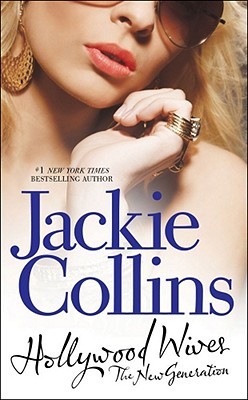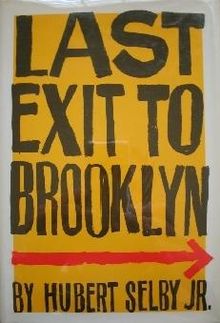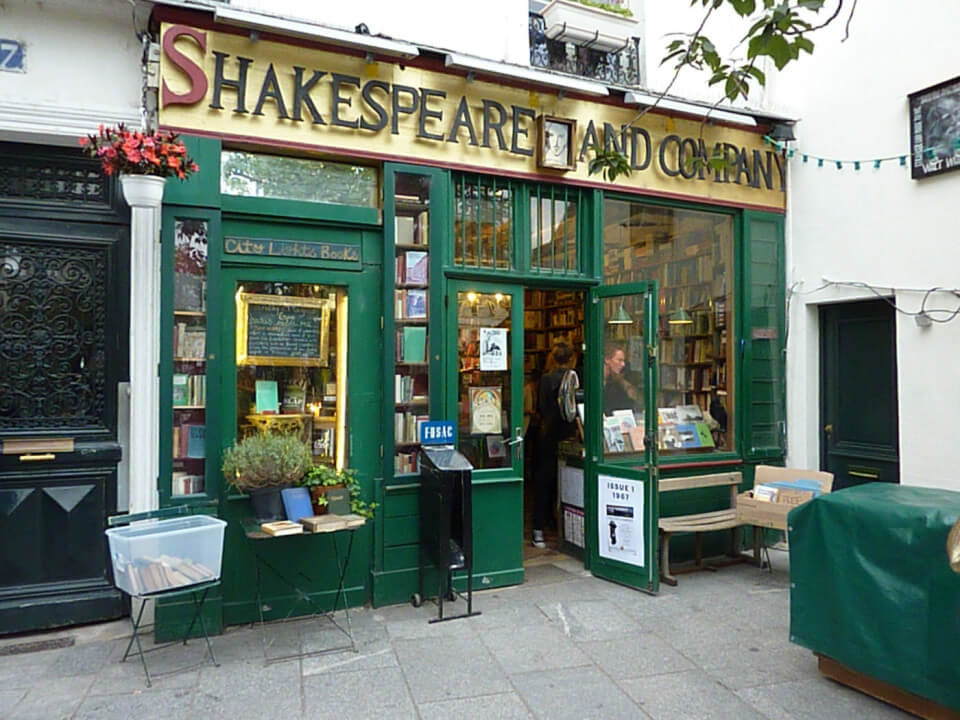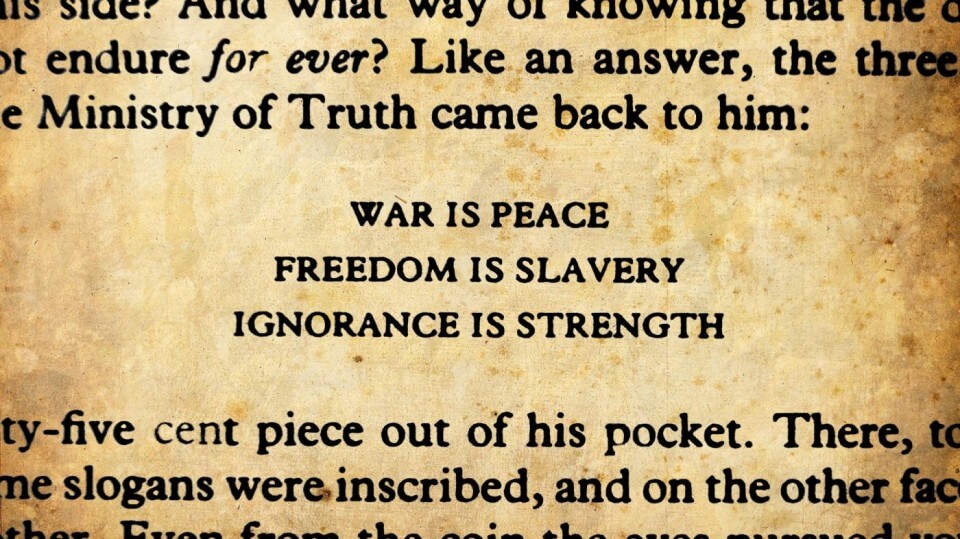Ricochet is the best place on the internet to discuss the issues of the day, either through commenting on posts or writing your own for our active and dynamic community in a fully moderated environment. In addition, the Ricochet Audio Network offers over 50 original podcasts with new episodes released every day.
 What was Your First Forbidden Book?
What was Your First Forbidden Book?
 Jackie Collins has died at the age of 77.
Jackie Collins has died at the age of 77.
Properly speaking, she was a writer of no talent whatsoever, and certainly of no interest to those of us who have gathered here to discuss conservative politics. As The New York Times explains, “She wrote more than 30 books, many of them filled with explicit, unrestrained sexuality, and sold more than 500 million copies worldwide. Her first novel, “The World Is Full of Married Men,” was published in 1968. Australia and South Africa banned it because of its frank depiction of extramarital sex. Other earlier works included “The Stud,” in 1969, and “Rock Star,” in 1988.”
No, Jackie Collins is not especially relevant to the concerns of Ricochet.
And indeed not relevant to my concerns, either — except that for a moment, when I read that she had died, I confused her name with that of Jacqueline Susanne, author of Valley of the Dolls, and a rush of memories came back to me.
Mind you, Susanne died in 1984 and is of even less interest to anyone here than Jackie Collins:
Valley of the Dolls is a novel by American writer Jacqueline Susann, published in 1966. The “dolls” within the title is a euphemism for pills, and was created by Susann. The term dolls also represents the women in the novel and their mishandling by the patriarchal world in which they are “played” by and dealt with as mere toys. The term also represents the women’s reliance on stimulants, depressants, and sleeping pills, and how substance abuse is reminiscent of children clinging to toy dolls for comfort. …
The book’s narrative is direct and often blunt in confronting social issues such as non-marital and extramarital sex, abortion, mental illness, shunning and shaming, patriarchal male sexism, the “Casting couch,” elitism, male homosexuality, lesbian sex, and classism. It contains profanity, obscenity and sexual slurs, including gay men being referred to as fags.
There is not one word of redeeming literary, moral, or cultural merit in that book. I know that for sure.
But when for a moment this morning I thought she had died — forgetting that in fact she was long since dead — I was saddened. For you see, Valley of the Dolls was the first book I was ever forbidden from reading. And in forbidding me from reading Valley of the Dolls, my father taught me lessons about literature that shaped my life.
 Now — technically, truthfully — Valley of the Dolls was the second book I was forbidden from reading. I was forbidden from reading the first when I was about eight years old. My father had been reading Last Exit to Brooklyn, and it was on the living room coffee table. I picked it up out of curiosity. My mother hadn’t read it, didn’t know what it was about, and thought my precocity in wanting to read a grown-up book like that both adorable and a sign that I must be very gifted and special. As mothers will.
Now — technically, truthfully — Valley of the Dolls was the second book I was forbidden from reading. I was forbidden from reading the first when I was about eight years old. My father had been reading Last Exit to Brooklyn, and it was on the living room coffee table. I picked it up out of curiosity. My mother hadn’t read it, didn’t know what it was about, and thought my precocity in wanting to read a grown-up book like that both adorable and a sign that I must be very gifted and special. As mothers will.
My father, on the other hand, had been reading it. He knew better.
I remember the whispered words “She shouldn’t be reading that, Toby,” followed by an even-more-whispered explanation of what I’d find if I did. I wasn’t supposed to be able to overhear that, but I recall it distinctly, even now. I won’t say what it’s in it: Perhaps some of you might wish to discuss this post with your own kids. An effort to distract me followed. It involved a promise of letting me watch television in the afternoon, which usually I wasn’t allowed to do unless I was sick.
I later (of course) snuck back into the living room, found the book, and read it. I’d never have made it past the first page had I not been told I was too young for it, and I was too young to understand any of it. I went back in adulthood and read it again, though, and my father was right: Not for kids — no way, no how. Still, since I didn’t understand it at all, it did me no lasting harm.
But the fight we had about Jaqueline Susann had a lasting impact. I was eleven by then, approaching puberty and on the verge of full-on adolescent rebellion. My father was taking his sabbatical year in Paris. We were on our own; my mom had stayed behind in Seattle. It was 1979, well before the Internet Age. Every week, my Pop would take my brother and me to Shakespeare and Company, the famous bookseller by the Seine, and we’d get to choose a few books to keep us busy all week.
about Jaqueline Susann had a lasting impact. I was eleven by then, approaching puberty and on the verge of full-on adolescent rebellion. My father was taking his sabbatical year in Paris. We were on our own; my mom had stayed behind in Seattle. It was 1979, well before the Internet Age. Every week, my Pop would take my brother and me to Shakespeare and Company, the famous bookseller by the Seine, and we’d get to choose a few books to keep us busy all week.
While he and my brother were browsing the other shelves, I opened Valley of the Dolls — which was on prominent display — and was hooked from the first page. I’d never read anything like that before. So when it came time to ring up our purchases, I trotted over with my fascinating new find. My father took one look, curled his lip in disgust, and said, “No.”
“Why not?”
“Because it’s dreck.”
I was shocked. Like most upwardly-mobile, middle-class parents, mine had taught me that reading was inherently good. The more I did of it, the happier they would be. It had not occurred to me before that day that this was only true of some books. I did not know that others might be dreck.
We had a fight in the bookstore that resulted in tears (mine). I refused to select another book. I sulked for an entire week. We had long discussions that week about why some books were literature and others dreck. “The only talent Jaqueline Susann has,” my father said, “is for putting words on a page, one after the other.”
When we returned the following week, my father chose the book I was to read. “Take this,” he said, giving me a copy of 1984. “Then you’ll understand the power of literature.”
He was correct about that, as he tends to be on all matters literary.
I don’t remember how, but somehow I managed to get my hands on a copy of Valley of the Dolls, as well as everything else Jaqueline Susann had ever written. My father’s fear that I’d get hooked on dreck — presumably moving from the gateway dreck of Valley of the Dolls to binge-watching The Apprentice — proved unfounded. When I saw that Jackie Collins had died — and before I remembered which dreck-writer was which — I went back to look up Valley of the Dolls. I’d forgotten every word of it.
 Yet I remember every word of 1984.
Yet I remember every word of 1984.
I guess the lesson — if there is any — is that the fastest way to get a kid to read a book is to ban it. But they’re going to read it anyway, so you may as well explain, in detail, why the book is dreck, give your kid a good book to read instead, explain why the good one is literature, and wait until your kid is nearly fifty, at which point, she’ll think, “Thank you, Pop, for teaching me the difference between literature and dreck.”
So, what was the first book you were forbidden to read? How does it stand up to time? What books do you forbid your kids from reading now?
Published in Culture, Education, General, Literature



Forgot the “banned” bit…my parents didn’t ban books. A few years later they realized that I was reading in their library when I started laughing along with my dad’s description of–and blurting out lines from–Philip Roth’s Our Gang. Portnoy’s Complaint suddenly went missing.
When I went rooting around for it, I found something far more compelling: their copy of The Joy of Sex.
That book. Holy crap. The porniest porn ever put to text, short of de Sade. Ann Rice had to be going “I just want some quick cash, and smut sells. I’ll just do it in a fairy tale”.
My first forbidden book was Call of the Wild. As a child I was told by a reading instructor that I wouldn’t be reading it in class because it was above my reading level. But I was so intrigued by her comments on the story to the higher level group that I stole and read the book. I read it years later with my son who loved it.
Come to think of it, comments on Ricochet were what got me to see Macbeth on stage. At the time, I was 57. I had never read any of Shakespeare’s plays, nor had I seen movies of them other than Romeo and Juliet. Macbeth was mind blowing.
After that (again inspired by comments or threads of Ricochet writers) I saw Hamlet on stage. Since then I’ve seen movies of these plays : Merchant of Venice (Al Pacino is unforgettable as Shylock.) Hamlet (Like or hate Mel Gibson, he was great as Hamlet.) A Midsummer Night’s Dream (Claire, dreck?) Twelfth Night (In light of today’s ginned up and politically utilized conflicts over sexual desire and identity, isn’t that one interesting.) and Richard 111. (The version I saw set the story in a country reminiscent of Nazi Germany. Ian McKellen plays Richard 111. It’s powerful.)
The parents of my grandchildren are getting DVDs of Shakespeare’s plays for Christmas and I’m signing them up for Ricochet. You people do more good than you’ll ever know.
This is wonderful to read. I’m so glad you let us know.
I suppose it could be a problem with certain depressive teens, but it seems to me most would find their actions at the end foolish and over-the-top.
My favorite Shakespeare play is King Lear.
The first two acts are almost funny. I’ve known all of the characters. :)
Like a good sermon that softens you up by making you laugh and relax, . . .
It was a play that I had missed somehow, and my daughter put it in my hand and said, “You have to read this.”
Pops never banned anything printed on paper, himself having the same need to read as the narrator of Borstal Boy. His effective anti-dreck technique (which probably really is a parental responsibility) was in refusing to read certain books aloud to us and giving an entertaining reason. Three I remember are: Thomas Bailey Aldrich’s The Story of a Bad Boy (he read the first sentence, which is Bulwer-Lytton Prize material); anything by James Fenimore Cooper (he read Twain’s “Fenimore Cooper’s Literary Offenses” to us instead, something he couldn’t do without corpsing); anything in the Bobbsey Twins series (never actually gave a reason other than detestation–suspect he figured if we hooked into one and liked it we were little lost causes.) I’m guessing now that these scarred his 1920s childhood somehow and he wasn’t having it for his kids.
Neither of my parents are readers, and they never questioned what I was reading. But they didn’t really know what I had checked out from the library, and the librarians never seemed to care. These were libraries on overseas Air Force bases.
The earliest naughty books I remember reading were some of the type of “Life in the Service”. I don’t remember titles or authors. I remember seeing “M>A>S>H>” in a theater on base in Texas, it had to be a reprise, because it came out when I was 8 in 1970. I think I was about 11 when I saw it. The first racy book I remember the title of was “The Happy Hooker” which I read at about 11 as well.
Two years ago I went to the Kafka museum in Czech Republic. Have never read him. Seemed like a rather depressed individual.
He wasn’t walking around saying “ack!” was he?
Our oldest clears his throat in just this manner, and we call it his Bill the Cat.
When I was in eighth grade I read part of that book (maybe half) and had to do an oral book report about it. The teacher didn’t know I hadn’t finished it, and near the end of my report he said I probably wouldn’t want to spoil the ending of it. I agreed I would not. Phew!
In conversation with a group of aging baby boomers from my church a few years ago I said that it is weird to me as a 90s adolescent that their parents would have had any reason to tell their kids not to watch something on tv, or even most movies, in the 50s and 60s.
I would say they mostly didn’t, though of course they thought they did, being parents. I can see the James Bond thing though, having watched Dr. No and From Russia recently, and its contrast with all the movies from the 40s and 50s I watch.
As for the music thing, I imagine baby boomers never got a clear definition of “jungle music” or how it was that four white boys in suits from England were playing it.
As an aging baby boomer, I should inform you that I thought Leave it to Beaver was a subversive, corrupting influence back at the time, and still think it was. I never cared for it; besides, it was about a world that was completely foreign to any that I knew about.
I don’t recall any parents saying we shouldn’t watch it, though.
My dear mother, from whom I got a lot of my attitudes, in her last years had a lot of those old TV shows going full blast during much of the day, so I couldn’t help but see snippets of them now and then. It reminded me that I still hate what they did to my generation (and maybe hers, too).
I never did finish Red Fern, for the record.
When I was 7 we went to the library and my parents told me to get something that wasn’t about dinosaurs. Whaaaaaattt!!!!!!!
I don’t know I ever was actively forbidden from reading a book that was too old for me, but I can think of a few times when a little common sense would have helped.
When I was in Junior High I checked a copy of Mein Kampf out of the library and got a very little way into it.
How can a book with so many Nazis in it be so boring?
I was recently telling someone that not only have i not seen that movie, i have never heard those stories.
I picked up a copy of the stories at a library book sale, figuring I wouldn’t have many more opportunities.
No Br’er Rabbit and the Tar Baby? No Br’er Rabbit and the Brier Patch? Holy Bamoley! Are you even ‘Murican? The phrase “Don’t throw me in that brier patch!” must have confused you mightily over time.
100 Days of Sodom is near the bottom of my list. I’ve read that it’s based on an unfinished manuscript so there’s not a coherent narrative. The political and philosophical aspects of de Sade are a large part of what intrigues me. My limited exposure to his writing reveals him to have had a sharp mind which distinguishes him from a libertine like GG Allin.
Have you by chance, seen the french film Marquis? It’s about de Sade and the French Revolution. All the characters wear animal masks and the Marquis converses with his anthropomorphic genitalia. Worth a look.
Venus in Furs is also on my reading list. :) As is The Story of the Eye. That sounds like an interesting one.
Sounds like Mr. Allin’s early childhood was like one of those deranged redneck horror movies. Also sounds like he may have had some of what his dad did.
You might be interested in Marat/Sade (1966). https://en.wikipedia.org/wiki/Marat/Sade_(film)
I consider King Lear the greatest play ever written, and in the top handful of the greatest literature ever written. If I were given a month to live, it would be on my re-read list.
I agree with you. :)
Re : 143
I’m actually afraid to see King Lear because I’ve taken care of too many old people who were badly treated by their middle aged children (well, and because, at almost 59, I’m starting to fear my own impending old age). But I have the play on kindle, and the hours of a plane trip ahead of me tomorrow. I think I could handle reading it. Glad your comment reminded me.
Ian McKellen also played King Lear. The movie (2008, I think) would have to be good.
Has anyone on Ricochet read Tom’s a-cold: a tale, by John Collier ? I can’t afford to buy the book, but I’m curious about it. Collier’s short story, Bird of Prey, is horrifying. But it’s also very good.
Oh! I am so sad that this is an old post! I was so terribly impatient with the pace of reading in school. I decided at a young age that it was well worth the poor grades to read the book at my own pace and the only books I read as instructed were those I truly didn’t enjoy. It seems a cruel thing to make a child wait for her peers when really enjoying a good read, which many assigned books are, in my experience.
I just reread through the entire post, and it was a good read. I always read everything assigned in class right away. Then would annoy my teachers dunning them for more. By the time I was in Jr. High I was allowed to check out any books and as many as I wanted.